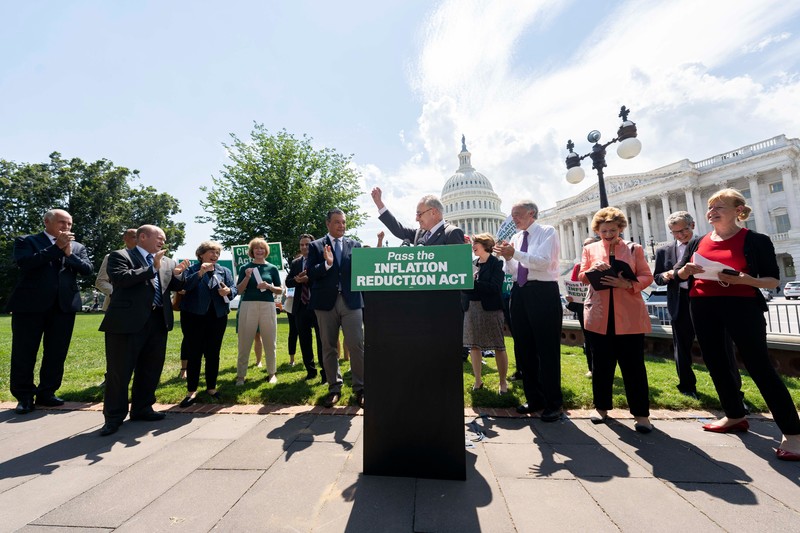Image: Senator Chuck Schumer promotes the Inflation Reduction Act | Source: Senator Chuck Schumer's Twitter
The US Senate passed large parts of President Biden’s domestic agenda yesterday in a landmark bill that will spend almost US$400 billion on clean energy programs and put the White House’s climate goals within reach.
Why it matters: As a former Prime Minister once said, living next to the United States “is like sleeping with an elephant [...] one is affected by every twitch and grunt.” And hundreds of billions of dollars in new spending—quite a bit more than a twitch—is going to reverberate through Canada’s economy.
The good news is that the most damaging aspect of the bill for Canada—a made-in-America requirement for an electric vehicle tax credit—was stripped from the legislation last week, a big relief for Canadian auto manufacturers.
- As one of the world’s leading suppliers of critical minerals needed for batteries and other clean energy technology, Canada stands to benefit from the new demand for those resources the bill is sure to create.
- There’s also likely to be a spillover effect of such a large amount of money flowing into the American economy that will benefit Canadian businesses who export to the US.
But it’s not all positive news for Canada: the vast amount of investment could spell trouble for our long-term competitiveness.
- The legislation includes billions of dollars over the next 10 years for companies building any zero-carbon technology, including solar, wind, geothermal, and nuclear, along with tax credits for domestic clean energy manufacturing and carbon capture technology.
- The federal government has made growing the clean energy sector a key pillar of its economic agenda, but their spending will now be dwarfed by the US commitment which is three times larger per capita.
“The tax incentives and investment tax credits are going to suck all of the innovation and ingenuity [in the clean energy sector] straight into the United States,” former Natural Resources Minister Lisa Raitt said on The Curse of Politics podcast.
Bottom line: With the US getting serious about its own clean energy and technology sectors, Canada needs to figure out its own competitive advantage in the fast-growing space—and soon.
